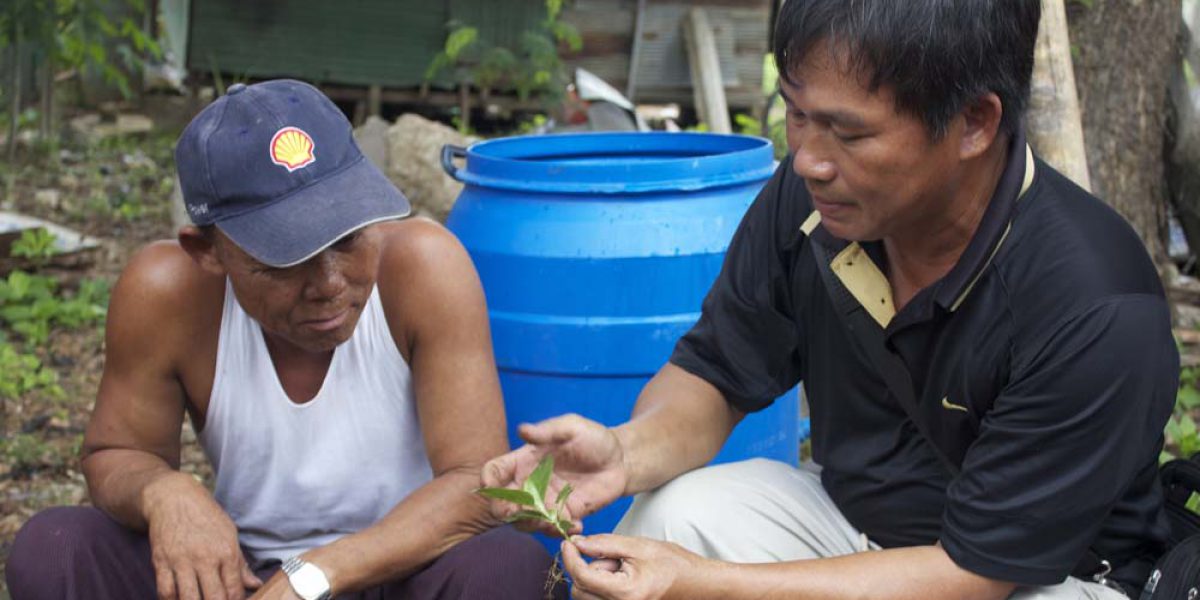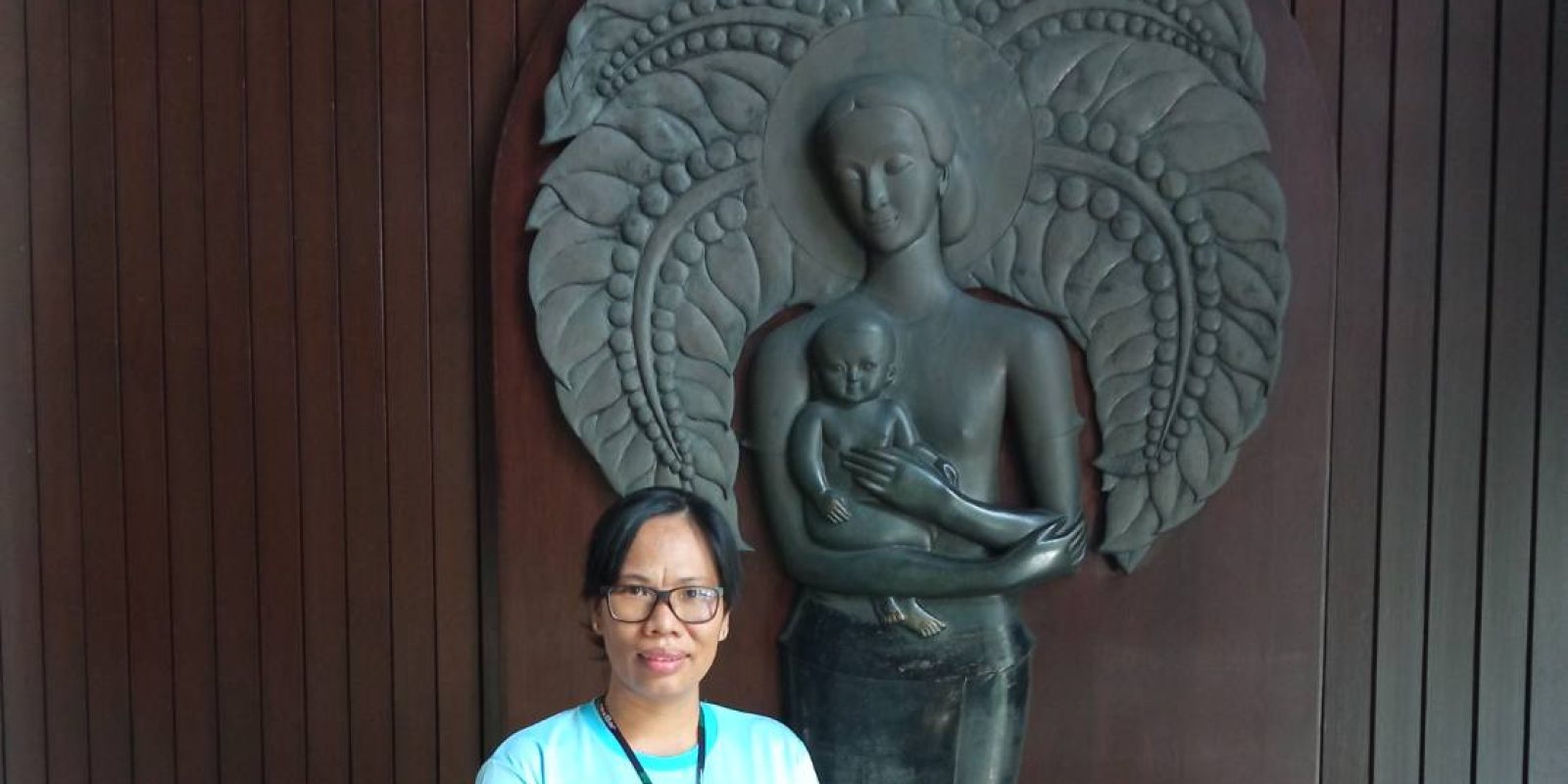Thailand: Growing a better life on the border
06 July 2011

Mae Sot, 6 July, 2011 – Rotting pumpkins, sugar molasses and maggots float in red sludge creating a mixture that’s both pungent and prosperous. Surprisingly, this rotting liquid is the secret to growing a strong garden. Well, that and good weather, of course.
In Mae Sot, Thailand, a border town where thousands of people migrate from Burma, work can be hard to come by, especially between planting and harvesting time in the large plantations. So in the mean time, a simple vegetable garden can mean everything.
After reevaluating the needs of the community, JRS Mae Sot working together with the local diocese is giving agricultural training and start-up materials to vulnerable families so they can both feed themselves and earn a small income without depending on NGO financial support every month.
“In the past, if they wanted to start their own gardens, they would have to take loans from owners of larger Thai plantations for seeds and chemical fertilizer. By the end of the season they would owe so much money that they would have to give over most of their crop to pay back the loan,” said Jennifer Titmuss, JRS Mae Sot project director.
That is why JRS decided to find ways to teach people how to make their own fertilizers and train them how to grow vegetables suited to the local soil and environment.
Building something better
It is at one of these trainings where U Shwe, a Karen father of three and day laborer in the city, pulls the lid off of a particularly stinky batch of this organic fertilizer that has been decomposing for six months. And while the concoction may not smell like the makings for an appetizing vegetable garden, those maggots have been hard at work helping decompose local plants into nutrition-filled fertilizer.
U Shwe churned the barrel of fertilizer with a bamboo pole, happy to start his garden again this year at a training held in front of his home.
“Selling this corn and morning glory from last season, we earned 2,000 baht (US $65),” said U Shwe, who depended on daily construction jobs for income, when he could find them. After this training he is hoping more of his crops survive this season so he can depend less on working construction, as he feels he is getting too old for the work.
But the composted fertilizer is just one of the fruits of this project. People receive instruction on how to make organic topsoil from cow manure, pesticide from lemongrass and learn how to plant crops like corn, morning glory and pumpkins.
Until last year, JRS Mae Sot was stuck in the dependency habit of handing out financial assistance to people who met the criteria of a refugee, and food assistance to local elderly groups.
Since last year, though, the JRS Mae Sot team have revamped the project, teaching people how to grow food they can sell and eat themselves. They have also helped families set up animal rearing, basket weaving and other small businesses based on what the local community said would be a good source of income and the skills of the families themselves. In addition, JRS helped a community-based organization set up a sewing training for those seeking factory work.
Prasong, the agricultural trainer from the local diocese learned organic methods of farming from his parents, and is happy to share those skills with people in the area. In the morning he and U Shwe, along with six others, sprinkled the fertilizer and pesticide on the garden bed during the first of three trainings that day.
“There are more and more people who want to learn and understand how to use the organic pesticide and fertilizer because it cuts costs,” Prasong said. “It feels good to see this knowledge spread amongst people.”
One leader of a Burmese community organization echoed that sentiment.
“People here will need more agricultural training because as long as Burma is not a democratic country, people will still come to Thailand every day who will need these skills in the future,” he said, sitting next to a garden he grew with this training.
In the countryside of Mae Sot, vast landscapes of rice fields convey the importance of agriculture. But in between those large fields, more and more small gardens are beginning to dot the landscape. And it’s those gardens that are offering people more than just income.
“This training isn’t just good for us, it’s good for our community, useful for the migrants,” U Shwe said. “We have knowledge now. We can do things ourselves.”


